In 2014, Readers Voted What the Body Remembers into the Top 10 Books on Canada Reads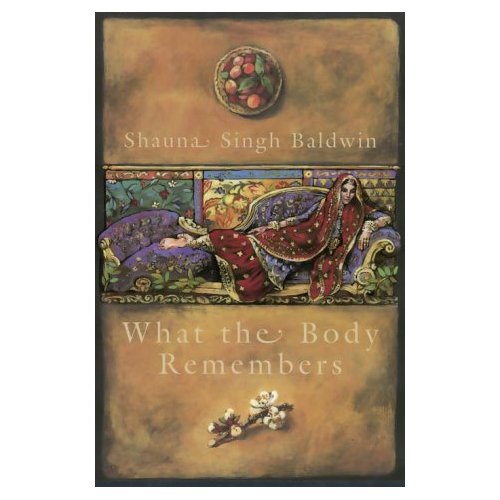
Bestseller 42 weeks, National Post
“Shauna Singh Baldwin won the Commonwealth Writers Prize 2000 Best Book Award in the Caribbean and Canada region for What the Body Remembers, putting her in the running for the global Commonwealth prizes to be presented on April 14th.”
—The Globe and Mail, Feb. 23, 2000
Longlisted for the Orange Prize 2000
National Bestseller in Canada (#6 National Post; #6 Maclean’s; #9 Toronto Star; #8 Edmonton Journal).
Village Voice Literary Supplement Editor’s Choice.
“Shauna Singh Baldwin’s debut 2000 novel What the Body Remembers has all the ingredients of a literary blockbuster – romance, history, suspense, and political intrigue. Its themes are as relevant today as they were two decades ago or, indeed, in British India in the first half of the 20th century. But what I fell in love with, just a few pages in, was the lyrical, sensuous prose.”
Oindrila Mukherjee – Scroll.in
“Wonderful! Wonderful! I just finished What the Body Remembers–what an amazing novel! I feel it has expanded my replenished. I drink your words!”
Sandra Gulland
“An epic of heartbreak and honour set in Northwest India in the dying light of the Raj…. Painstakingly researched, its characters frankly convincing, and set gainst a rich backdrop of gods, politics and tradition, this novel earned its Montreal-born author the Commonwealth Writers Prize 2000 for Best Book in Canada and the Caribbean.”
National Post
“I very much admired the strength and control with which the author keeps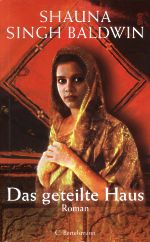 her complex story going, and at the same time keeps it clear, and true to the spirit of India.”
her complex story going, and at the same time keeps it clear, and true to the spirit of India.”
Penelope Fitzgerald
“If you’re one of those readers of novels who likes to think ahead, you might want to clear some space on the bedside table for What the Body Remembers… It’s not going to be out for another year, but already the buzz is stuff of the highest voltage…. The Next Big Thing.”
The Globe and Mail
“Engaging.”
The Globe and Mail
“The dramatic and brutal story behind the 1947 partition of India, as played out in the region of Punjab, is the compelling backdrop for this stunning first novel that entwines the fate of three remarkable characters…. Intensely atmospheric, the novel contains lyrical descriptions of daily life in a village with dusty fields of maize and clusters of homes: the cinnamon, anise and fennel small of Satya’s kitchen; Sardarji’s Oxfordian attire and his spindly-legged English furniture…. Baldwin achieves an artistic triumph on two levels, capturing the churning political and religious history of modern India and Pakistan as she explores memorable transformations: of Satya … of Sardarji … and finally of Roop.”
Publishers Weekly
“Few enough novels deal with the wrenching period in Pakistan’s history known as partition; fewer still filter these events through a woman’s eyes. Shauna Singh Baldwin’s What the Body Remembers does both, placing a heartbreaking family saga against a turbulent period in world history to explore how the personal becomes political. More than just a story about a polygamous marriage the novel is an allegory for the partition period.”
Publishers Weekly
“Stunning…Intensely atmospheric, lyrical…An artistic triumph…Remarkable.”
– Publishers Weekly
“Baldwin’s novel is set in the Punjab during the years leading to India’s Independence, and partition, in 1947.By focusing on a Sikh family, What the Body Remembers manages to provide a different perspective on that tragic and brutal period which so often is expressed in terms of the confrontation of Hindus and Muslims. The viewpoint is, as well, a feminist one: the two central characters are the middle- and teen-aged wives of a 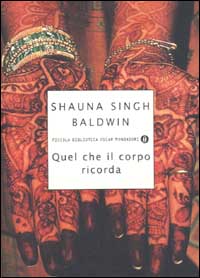 wealthy Sikh landowner. The dilemma of these women, caught in a struggle for the favor of an aloof husband, becomes a metaphor for the Indian subcontinent itself, riven by the divide-and-rule policy of its British overlords. Baldwin adds a fresh voice to the extraordinary generation of writers of Indian origin who have contributed so profoundly to English literature.”
wealthy Sikh landowner. The dilemma of these women, caught in a struggle for the favor of an aloof husband, becomes a metaphor for the Indian subcontinent itself, riven by the divide-and-rule policy of its British overlords. Baldwin adds a fresh voice to the extraordinary generation of writers of Indian origin who have contributed so profoundly to English literature.”
— Virginia Quarterly Review
“[It] is much to Shauna Singh Baldwin’s credit that in her rich and gripping novel, What the Body Remembers, she is able to present a picture of Partition that is both complex and focused, aware of viewpoints other than those espoused by the characters and alive, also, to the dangers of allowing plot to get swamped by politics. … With remarkable deftness, Baldwin shows how the balance of power between the women shifts and shifts again… Baldwin’s portrayal of Sardar-ji is brilliantly believable…” — Times Literary Supplement
“Baldwin – born in Canada, raised in India, now living in the United States – refuses to cast any people or individual as solely heroic or villainous… Plot is also rendered deftly, as the main characters’ intimate lives are woven into the fraying fabric of Indian history… In fact, “cinematic” is the word for the sweep and urgency of this writing as it depicts escalating violence and impending doom… Comparisons with other war-tinged, end-of-an-era novels like Margaret Mitchell’s Gone With the Wind or other ethnic women’s fiction like Amy Tan’s Joy Luck Club are inevitable, but What the Body Remembers is unique and unforgettable.”
San Diego Union Tribune
“astonishing… Taking as its subject the huge and complicated canvas of pre and post-Indian Independence from 1937-47, What the Body Remembers is set in a Punjab seething with political unrest; but its themes and emotional heart are ancient ones of love, jealousy, infertility and religious fury, cunningly dovetailed into the saga of one Sikh family… The individual stories and complex religious and philosophical divisions are woven into the larger picture with supreme confidence and a poetic intensity. The characters shimmer with life, their predicaments grab the reader by the throat, their fate has the reader on the edge of the seat, their individual psychological journeys are instantly recognizable…open up another world and yet offer a glimpse of humanity that is both intimate and universal… No doubt the author will be compared to Arundhati Roy and it is true that, in their capacity to engage with the epic story, they have some similarities. Nevertheless, Shauna Singh Baldwin is her own master and this book is an enthralling read.” – The Times (London)
“An impressive achievement…rich, fascinating, epic…[Baldwin] weaves a richly textured tapestry of a complex and cruel society built around the second-classness of women…. An original, 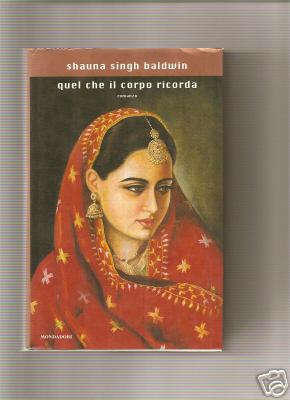 extremely readable book that dramatizes the plight of Indian women with great sympathy and love.”
extremely readable book that dramatizes the plight of Indian women with great sympathy and love.”
— The Montreal Gazette (review)
“a gripping novel… at times heartbreaking, at times bittersweet…”
The Montreal Gazette (interview)
“All the best books open out a different world to the one you know… Some of the most interesting books [Dava Sobel; Roddy Doyle; Rose Tremain] published this autumn are like that; they dig into history, they travel continents, and then they alight on the glancing details and personal stories that make the rooms and streets of seventeenth-century Europe or Thirties India as sharp as the scene outside your own window… But my favourite of all these excursions into the past is a first novel by Shauna Singh Baldwin…”
Natasha Walter,
1999 Booker Prize judge, Vogue (UK)
“At the heart of What The Body Remembers – a powerful saga of a Sikh family set against the Independence movement – are three unforgettable characters… Baldwin is a masterful storyteller and though the idea that men look at women “only through the corner of their eyes” underpins her story, Satya and Roop are not clotheshorses for feminist statements. They are complex, shaded and resonant with ironies… Baldwin’s portrayal of Partition is made even more poignant and horrific because she has earlier detailed the old, syncretic rhythms of life with such warmth and flavour… Marvelously also, her novel is layered both with a palpable Sikh ethos as well as a western, cosmopolitan lifestyle; imbued with fragments of conversation in Punjabi and snippets of songs and prayers… What The Body Remembers is a triumphant and fascinating example of a bilingual sensibility which has successfully and convincingly translated itself into English. Perhaps for the first time. Read this book.”
— Outlook magazine (India)
“Baldwin describes the scenes of the Independence movement with great verve. For the subcontinent, Partition was the most momentous event of the 20th century. But men who were affected by it…have written most of the literature. This is a woman’s perspective. And because women suffered most when their homes were uprooted, this book becomes a more intimate account.”
— India Today
“While What the Body Remembers will be read as a story of familial relations, it will be remembered more as social history – the customs, traditions and mores of rural Punjab, many still unchanged.”
India Today
“an impressive first novel, hype or no hype. Baldwin’s passion for re-membering her dis-membered homeland, and her desire to tell women’s version, propel the last half of the nov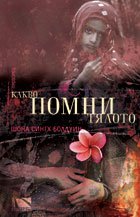 el and make it particularly potent.”
el and make it particularly potent.”
— Quill & Quire
“A richly textured often poetic story … Newcomer Baldwin’s theme – the grueling uses to which women’s bodies and spirits are put, and their abuses at the hands of men – combines with the political analogue of India’s struggle for independence to produce a lush, sensuous drama.”
– Kirkus
“This narrative about fathers estranged from daughters, mothers from sons, husbands from wives, becomes a metaphor for the turmoil and flux we call history, without always speaking of that history directly… When history does enter the novel, Baldwin introduces it expertly… This is a novel whose many themes and characters have been orchestrated, for the most part, with great confidence and without sacrificing complexity. It is an impressive debut.”
— The National Post
“Singh Baldwin’s gift of creating convincing interior dialogue is ever-present throughout her novel…. What the Body Remembers will leave its readers full, certainly, and like all fine works, the digestion will take many days, and the feast remembered the more fondly for it.”
— The New Brunswick Reader
“Singh Baldwin’s protagonists will keep a reader captivated throughout the long journey of the novel… [her] gift of creating convincing interior dialogue is ever-present… The scope of What the Body Remembers is a vivid contrast to the fact that this is her first novel… The reader cannot help but become engrossed in what is so unfamiliar, yet so immediate in Singh Baldwin’s treatment… What the Body Remembers will leave its readers full, certainly, and like all fine works, the digestion will take many days, and the feast remembered the more fondly for it.”
New Brunswick Telegraph-Journal
“fascinating”
— The Independent (London)
“Read it.”
— Cosmopolitan India
“a sensitive portrayal of the condition of women in the Indian sub-continent… without the stridency of feminism”
— India Currents
“the author weaves a richly textured tapestry of a complex and cruel society built around the second-classness of 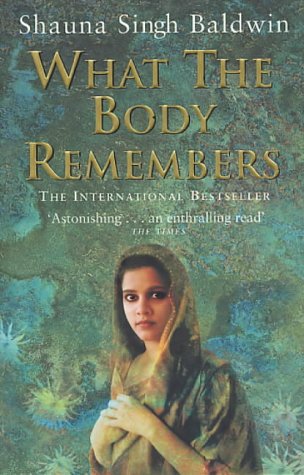 women… One of the most interesting features of this fascinating book is the degree of complicity of Roop in her own fate… What the Body Remembers is an original, extremely readable book that dramatizes the plight of Indian women with great sympathy and love… an impressive achievement, particularly for a first novel.”
women… One of the most interesting features of this fascinating book is the degree of complicity of Roop in her own fate… What the Body Remembers is an original, extremely readable book that dramatizes the plight of Indian women with great sympathy and love… an impressive achievement, particularly for a first novel.”
— Windsor Star
“This well researched, often lyrical novel is of unique historical significance: it reflects and defends the Sikh position in the politics of the Punjab during the Partition of India in 1947. It also traces the gripping story of one Sikh family, and in the telling opens doors and windows to the psyche and lore of a community”
— Bapsi Sidhwa, author of Cracking India
“Baldwin has captured the tensions between Sikhs and the rest of the India with both precision and poignancy… [She] displays the gifts of a first-rate social observer. Her geographical and cultural range comes alive as we follow the protagonists and the nation as they spiral towards independence… The fragility of family bonds serves as a metaphor for the unravelling of the entire country. Baldwin’s saga contains memorable and harrowing descriptions of the night of India’s independence and partition… Baldwin passionately records the longings, losses and compromises of her characters’ simple lives…”
— Winnipeg Free Press
Baldwin has captured the tensions between the Sikhs and the rest of India with both precision and poignancy. The insular world of the Sikhs serves as a picturesque backdrop for a society caught between two worlds. While the novel’s historical text is based in fiction, it also tells an incisive history of the Punjab. Baldwin displays the gifts of a first-rate social observer. Baldwin passionately records the longings, losses and compromises of her character’s simple lives, and the inherent consequences they face, straddled between cultures, ideologies and religions. ‘
-The Winnipeg Free Press
“a very impressive debut”
Holly McNally, McNally Robinson Booksellers, Winnipeg
“wonderful characters and a really interesting plot”
Laurie Greenwood, Greenwood’s Bookshoppe, Edmonton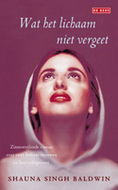
“[We] are offered a sumptuous tour of that rich and poor and calm and chaotic country …”
The New York Times Book Review
“A captivating jewel of a novel by a seasoned and sophisticated writer…Beyond being a compelling tale of individuals, What The Body Remembers offers a gimlet-eyed view of a pluralistic society’s disintegration into factionalism and anarchy.”
-The Washington Post
“Shines…an ambitious debut.”
-Entertainment Weekly
“The people at Knopf Canada must be doing cartwheels these days over the signing of…Shauna Singh Baldwin…for…What The Body Remembers…”
-Ottawa Citizen
“ ‘What The Body Remembers will surely be hailed as one of the most important and original novels about Indian history,’ says Kevin Baldeosingh, chairman of the Caribbean and Canada judging panel.”
-Toronto Star
“What the Body Remembers is an engaging story of life in pre-partition India, and a compassionate look at the lives of its two protagonists—Sikh women who are practically voiceless within their own culture…History is merely a background to the domestic story, but its intimacy is what makes this novel work…What the Body Remembers is a worthwhile read.”
–Edmonton Journal
“…A gripping intimate story of the lives of two families set with a backbone of historical fact. What the Body Remembers is a poetic assimilation of Eastern ideas and universal longing.”
-North Shore News
“Her first novel, What the Body Remembers, is a passionate epic tale set amid social strife, the political and religious turmoil, which simmered for generations and exploded like a land mine after Second World War…This novel introduces readers to a rich cultural landscape that shimmers in the heat of the day, the fine dust of oppression settling over the villages, deteriorating the spindly English furniture that Sardarji cherishes.”
-North Shore News
“Shauna Singh Baldwin’s impressive first novel, What the Body Remembers, is a sprawling tale which primarily covers the 10 years leading up to partition in India. It is also a striking book in that it tells its story first from one woman’s, then another woman’s point of view, as well as from the Sikh perspective.”
-FFWD
“…a shining new novel…What the Body Remembers heralds the arrival not only of a significant new talent, but also of a fresh perspective on history, rarely experienced before.”
The Readers Showcase.
“…Baldwin both overwhelms and educates as she takes readers on this crowded and eventful ride through the complexities of life in 20th-century India.”
-Monday Magazine
“Shimmers with life…An enthralling read.”
-The Times (UK)
“La Mémoire du corps (What the Body Remembers) est un livre subtil, délicat, soyeux comme un châle du Cachemire. Nous sommes au Panjab, dans les méandres de l’Indus, au tournant des années 30-40. Une époque particulièrement troublée, sur fond de partition et de conflits religieux. La romancière y ajoute ses propres enluminures, en se glissant dans le huis clos d’une famille dont les déchirements intimes reflètent les drames de tout un peuple. Pour en savoir plus sur l’éclatement de l’Inde, il faut lire ce roman très politique, mais de bout en bout sensuel, chatoyant, qui regarde la grande Histoire par la lorgnette des toutes petites histoires. Shauna Singh Baldwin: une fée est née.”
Le Temps – Geneve.
“What the Body Remembers is a beautifully told story… The traditions and habits of the people are also described in all their detail, without losing the reader’s interest. ..Clearly, greed and treachery are universal. You will not forget the characters in this story…Make it a point to get your hands on this book.” The Princess Project, Kenya
“Away from the sordid realities of South Asian politics, Shauna Singh Baldwin’s fiction offers a fresher, warmer and reflective perspective…”
FiveBooks.com
“There are only a few novels that I like to re-read, and this is one of them… [a] richly woven novel… Ancestral trauma, truth, silence, atonement, sacrifice, love, and memory, themes that continue to ripple and resonate for me.”
Michelle Grierson, author of Becoming Leidah.
On Shepherd.com: Best Books that Explore Ancestral Trauma